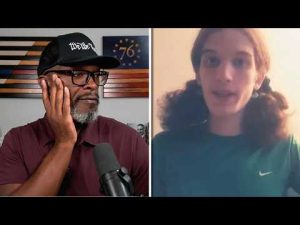In a shocking incident that has left a community in mourning, a 23-year-old gunman named Robin Westman unleashed a horrific attack at the Annunciation Catholic Church and School in Minneapolis. The attack claimed the lives of two young children, ages eight and ten, and injured 17 others, leaving a devastating mark on the lives of so many families. In a chilling prelude to his actions, Westman had left behind a series of videos and writings that pointed to a troubling motive tied to the Christian faith of his victims.
As the dust began to settle, many in the community expected leaders to address the true nature of the tragedy. Unfortunately, it seemed that some officials preferred to divert attention from the real issues. Mayor Jacob Frey found himself in the spotlight, voicing concerns about the potential backlash that the transgender community might face in the wake of this attack. Instead of focusing on the grief-stricken families and the young lives lost, the mayor’s comments seemed to prioritize political narratives over the heartbreaking reality on the ground.
Westman’s identity and background have added another layer to this already convoluted story. Born Robert, he changed his name legally in 2020 and was identified by authorities as transgender. However, what should be the central issue—the lives that were tragically cut short—has been overshadowed by discussions about gun control and social issues. It’s as if the mayor and other leaders are trying to turn the conversation into a critique of gun owners instead of confronting the evident hate that fueled this attack.
The police investigation revealed more unsettling details about Westman’s motivations. Evidence showed that the gunman had a specific and disturbing focus on Christianity, with a firing range target of Jesus adorned with a crown of thorns hanging in his room. His writings included disturbing messages that raised questions about his mental state and the anguish he seemed to harbor towards those who practiced their faith. The chilling images of firearms sprawled across his bed, with one magazine asking, “Where is your God?” only deepened the unease surrounding his actions.
Perhaps most alarmingly, Westman had a plan in place to trap children inside the school. This forethought indicated a sinister level of preparation that added to the terror of the event. He had even shown in videos how he would jam open the emergency exit, demonstrating a clear understanding of the layout and movements of the school. If anyone doubted the malicious intent behind his actions, this certainly painted a grim picture.
As law enforcement continues to classify the incident as domestic terrorism and a hate crime against Catholics, many are left wondering how we can move forward from this. The tragedy is a stark reminder of the necessity for honest conversations about violence, mental health, and the real motives behind such senseless acts. In times of grief, it’s crucial to focus on compassion for the victims and their families, rather than winding through the complex and often politicized narratives that can arise in the wake of such heart-wrenching events. The memories of the innocent lives lost should serve as a call to action for communities to come together in understanding and healing.







